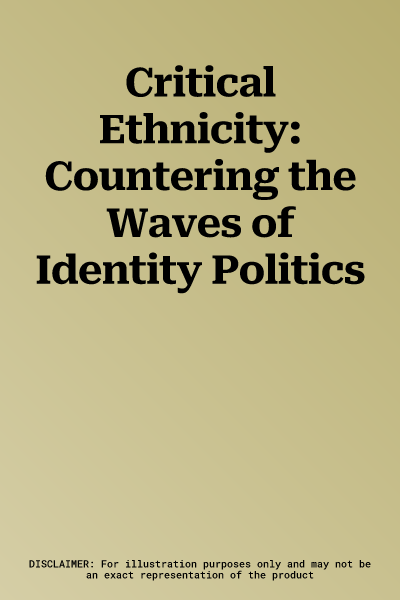Critical Ethnicity: Countering the Waves of Identity PoliticsPaperback, 12 August 1999

Qty
1
Turbo
Ships in 2 - 3 days
In Stock
Free Delivery
Cash on Delivery
15 Days
Free Returns
Secure Checkout

Part of Series
Critical Perspectives Series: A Book Series Dedicated to Pau
Part of Series
Critical Perspectives Series
Part of Series
Critical Perspectives (Paperback)
Print Length
220 pages
Language
English
Publisher
Rowman & Littlefield Publishers
Date Published
12 Aug 1999
ISBN-10
0847691144
ISBN-13
9780847691142
Description
Product Details
Book Format:
Paperback
Country of Origin:
US
Date Published:
12 August 1999
Dimensions:
22.78 x
14.83 x
1.24 cm
ISBN-10:
0847691144
ISBN-13:
9780847691142
Language:
English
Location:
Lanham, MD
Pages:
220
Publisher:
Series:
Weight:
290.3 gm